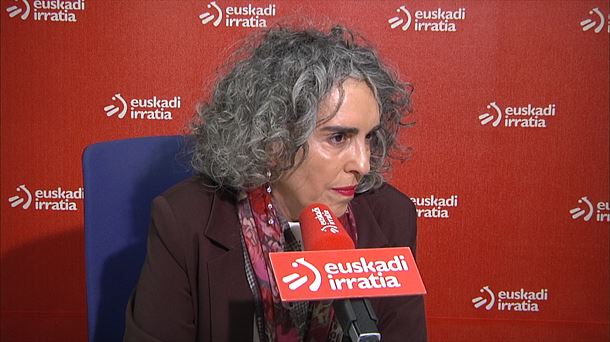After the storms in Tyrol, speed is needed to clear the wind in the woods. ÖVP Agriculture Minister Norbert Totschnig explains the procedure in an interview with the “Krone” and talks about predators, animal transport and fair pay for farmers.
“crown”: Minister, after the storms, the bark beetle is at the door. Skilled workers to repair the damage are scarce. How to solve the problem?
Norbert Totschnig: Extreme weather events are a result of climate change. The big task is to position ourselves. We counter the problem with special programs in torrent and avalanche control. Above all, the negative example of East Tyrol shows us that when several events follow one another, there is a huge problem with the bark beetle. Especially when a drought is coming. Now the situation is such that we have storm damage that needs to be repaired quickly. This was discussed at a forest summit. The insight from this was that the capabilities are there to get started quickly.
Can it all be done?
You can’t go through everything this year, but we’ll definitely get far. When we make it to spring, we will not experience the same situation in North Tyrol as in East Tyrol. In total, this concerns about 550,000 cubic meters, thousands of which have already been processed. So it works. But yes, this is also a fight against time.
How is this funded?
We are making an additional four million euros available to the existing forest fund. This includes a total of 350 million euros, of which Tyrol accounts for 23 million euros. This allows us to invest in reforestation, dry storage, forest protection and forest fire prevention. However, due to the required protective constructions, additional resources are required. We will also fight for this, because it is about protecting the population. In Tyrol we have 60 percent protected forest. If forest damage occurs over a large area, this means 10 to 100 times the costs of fighting floods and avalanches compared to the maintenance costs normally incurred in the protected forest. It will take thirty to fifty years before this gap is closed.
On Wednesday, the association against animal factories criticized the fact that two calves were transported from Tyrol to southern Italy for two days and were slaughtered there without sufficient care. How do you feel when you hear this?
Last year we implemented an amendment to the Animal Welfare Act, with improvements in the areas of pig, cattle and animal transport. When I hear something like that, it is extremely annoying and hurts us. In Austria we have very strict rules. The problem is: we are in an internal market. The authorities are responsible up to the border. After that, other authorities are responsible. About 50,000 calves are shipped abroad every year, but hundreds of thousands are born here. In Austria, a lot of them are fattened and used. If something goes wrong with the part being exported, it must be sharply criticized. We can only work towards stricter measures at EU level.
A hot topic is the wolf killing one sheep after another. What do you think about shooting the wolves?
I always start this debate by saying that the wolf is no longer threatened with extinction in Europe. There are more than 19,000 individuals. The population is safe and is growing at an annual rate of 30 percent. Now it is about creating regulations that allow farming on the alpine pastures and guarantee the protection of the population. An evaluation at EU level is needed here. We asked for this last year. The Commission has announced an analysis of the problem for the autumn.
Why aren’t things like this implemented right away? Many people don’t understand that, especially the farmers.
We have similar problems in Europe, but also completely different positions among governments. In Spain, for example, the wolf problem is the same, but there the government has generally banned shooting. In Slovakia it is similar. Only in a few countries is the subject approached so offensively and actively as in Tyrol, Salzburg or Carinthia. We must form alliances here and develop further. We’re in.
Isn’t that too slow?
We are used to everything happening instantly. However, for laws it sometimes takes several years. By the way, there will be a summit conference on wolves in Alpbach next week. Vorarlberg, Carinthia, Salzburg, Switzerland, South Tyrol, Tyrol and Bavaria will be represented. Also the Swedish Minister of Agriculture.
Fair milk prices are also discussed time and time again. How do you intend to guarantee fairer wages for farmers?
The agricultural market has experienced global market conditions since it joined the World Trade Organization in 1995. That’s where the pricing takes place. Our job is to support the processors and farmers so that they can follow a quality strategy and differentiate their products in the market, enabling added value. We cannot determine the market price, but there are environmental programs that support farmers.
How often does the minister of agriculture eat meat?
I stand for healthy food and products from the region. And I like meat. But I make sure it stays balanced. Of course I always ask about the origin.
Was it always your dream to become a minister?
I have always loved working in politics. But it’s not about which positions you want, but about what you can contribute. That’s just fun for me. I was surprised when I was offered the job.
Source: Krone
I am Ida Scott, a journalist and content author with a passion for uncovering the truth. I have been writing professionally for Today Times Live since 2020 and specialize in political news. My career began when I was just 17; I had already developed a knack for research and an eye for detail which made me stand out from my peers.



